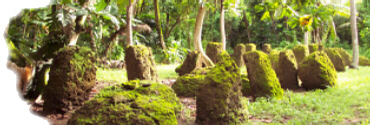


|

|
|
__________________________
|
_______________________________________________________________________________
Main > About Us _______________________________________________________________________________ Who We Are The Southwest States & Pacific Islands (Region 9) Water Program (SSPIWP) is a partnership among the Land Grant Institutions (LGIs) in four southwest states (Arizona, California, Hawaii, and Nevada), six Pacific islands (American Samoa, Commonwealth of the Northern Mariana Islands, Federated States of Micronesia, Guam, Republic of the Marshall Islands, and Republic of Palau), and two Indian Nations (Navajo and Tohono O’odham), and the USDA NIFA National Integrated Water Quality Program. We deliver and share research, education, and outreach programs that either lead directly to cleaner water or increase the capacity of people to manage water resources.
Within this spatial diversity, are climatic extremes of arid deserts and island areas where annual precipitation can exceed 40 feet. Despite great spatial, climatic, geologic, and cultural diversity within the region, common problems exist on issues related to both water quantity and water quality. By working together as a region, we gain collaborative knowledge and resources that can be used to address issues that exist on a region-wide scale. What We Do The Program provides leadership for water resources research, education, and outreach to help people, industry, and governments across the region prevent and solve current and emerging water quality and quantity problems. Three major goals of the Southwest States and Pacific Islands Region are: 1. To identify and prioritize regional water quality concerns, and facilitate resource sharing through regional coordination, communication, and planning.To meet these goals, the network of extension and research personnel with the Land Grant Universities in the Southwest States and Pacific Islands Region are responding to water quality issues through technology development, technology transfer, and educational programs. By working together on such programs, we:
A logic model help to plan, implement, evaluate, and communicate more effectively. As part of our requirements of the grant, the Region 9 Water Quality Team has prepared a logic model for the regional project [PDF]. For more information on logic models, please refer to the University of Wisconsin-Extension, Program Development and Evaluation website [http://www.uwex.edu/ces/pdande/evaluation/evallogicmodel.html] This material is based upon work supported by the National Institute of Food and Agriculture, U.S. Department of Agriculture, under Agreement Number 2009-51130-06048. |
 |
 |
 |
 |
 |
 |
||
|---|---|---|---|---|---|---|---|
 |
 |
 |
 |
 |
 |
||